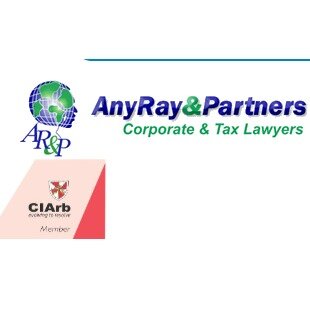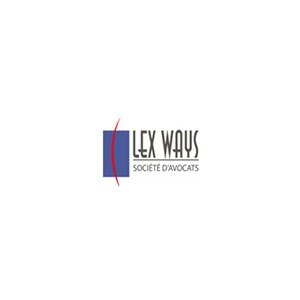Best Climate Change Law Lawyers in Ivory Coast
Share your needs with us, get contacted by law firms.
Free. Takes 2 min.
Or refine your search by selecting a city:
List of the best lawyers in Ivory Coast
About Climate Change Law in Ivory Coast
Climate Change Law in Ivory Coast is an emerging area of environmental legislation that addresses the mitigation and adaptation to the effects of climate change. The country, also known as Côte d'Ivoire, is vulnerable to climate-related challenges such as rising sea levels, coastal erosion, and changing weather patterns that impact agriculture, infrastructure, and public health. The government has recognized the importance of legal frameworks to meet its international commitments, such as the Paris Agreement, and to foster sustainable development while protecting its citizens and environment. Climate Change Law in Ivory Coast encompasses regulations on greenhouse gas emissions, renewable energy, environmental protection, and sustainable management of natural resources.
Why You May Need a Lawyer
There are several reasons why individuals, businesses, and organizations in Ivory Coast may need legal assistance in the field of Climate Change Law. Lawyers can help interpret complex regulations and ensure compliance with national and international climate change obligations. Common situations where legal help is needed include:
- Understanding or contesting government policies that affect your property or business due to climate-related regulations
- Navigating environmental impact assessments required for development projects
- Dealing with permits for emissions, waste management, or renewable energy projects
- Challenging or defending climate-related violations or sanctions
- Drafting or reviewing contracts that involve climate risk or environmental obligations
- Pursuing climate justice issues, for example on behalf of vulnerable communities
- Advising on climate finance mechanisms and international agreements
Local Laws Overview
The legal landscape for Climate Change Law in Ivory Coast is shaped by a mix of national policies, environmental codes, and international commitments. Key aspects include:
- National Policy: The country has adopted the National Strategy for Combating Climate Change (SNCC) which sets targets for mitigation and adaptation efforts nationwide.
- Environmental Code: The Environmental Code (Code de l'Environnement) outlines general principles for environmental protection and includes provisions on emissions, waste management, and biodiversity.
- International Agreements: Ivory Coast is a party to the Paris Agreement and reports its climate ambitions through Nationally Determined Contributions (NDCs).
- REDD+ Initiatives: The country is involved in Reducing Emissions from Deforestation and Forest Degradation (REDD+), supporting conservation and sustainable forest management.
- Renewable Energy Laws: Legislative efforts are underway to promote renewable energy production and encourage sustainable infrastructure projects.
- Climate Finance: Several laws regulate the mobilization and management of funds for climate adaptation and mitigation projects.
Frequently Asked Questions
What is Climate Change Law in Ivory Coast?
Climate Change Law refers to all laws, rules, and policies designed to limit greenhouse gas emissions, promote renewable energy, protect the environment, and help the country adapt to climate change and its effects.
Does Ivory Coast have laws that require businesses to reduce carbon emissions?
Yes, businesses are subject to regulations under the Environmental Code and related policies, which set standards and targets for emissions reduction, especially for major polluters.
Is an environmental impact assessment (EIA) necessary for new development projects?
Most new projects, especially those with potential environmental impacts, must undergo an EIA as part of the permitting process, in line with national environmental regulations.
Who is responsible for enforcing Climate Change Law in Ivory Coast?
Enforcement is primarily handled by the Ministry of Environment and Sustainable Development, along with other regulatory agencies and local authorities.
Can individuals or communities take legal action over climate change impacts?
Yes, affected individuals or communities may seek legal remedies if their rights are threatened by climate-related activities, such as pollution or land use changes, subject to local legal procedures.
Are there incentives for investing in renewable energy?
The government offers incentives and support for private investment in renewable energy, including tax benefits and assistance with project development.
How does Ivory Coast contribute to global climate efforts?
Ivory Coast submits climate action plans through its Nationally Determined Contributions under the Paris Agreement, and implements national strategies and policies to reduce emissions and promote sustainability.
What legal obligations do companies have when operating in protected areas?
Companies must comply with strict environmental regulations, obtain special permits, and ensure their activities do not harm protected areas or endangered species.
Can foreign investors participate in climate-related projects in Ivory Coast?
Yes, foreign investment is welcomed for projects related to clean energy, sustainable agriculture, and other climate-oriented sectors, subject to national investment and environmental laws.
Where can I find professional legal assistance for climate change matters?
You can consult law firms, legal aid organizations, or contact the Ministry of Environment for a list of qualified professionals specializing in environmental and climate change law.
Additional Resources
For more information or assistance related to Climate Change Law in Ivory Coast, consider reaching out to the following:
- Ministry of Environment and Sustainable Development - The main government body responsible for developing and enforcing climate policies.
- National Climate Change Program (PNCC) - Coordinating body for the implementation of national climate strategies and action plans.
- Ivorian Bar Association - Can help you find qualified lawyers specializing in environmental and climate change law.
- Environmental NGOs - Local and international organizations offer advocacy, education, and may assist with legal advice and representation.
- UNDP and World Bank Country Offices - Support climate change projects and can provide policy and resource guidance.
Next Steps
If you believe you need legal advice or representation for a climate change related issue in Ivory Coast, consider the following steps:
- Clearly identify your specific legal concern or question.
- Gather any relevant documents, contracts, or correspondence regarding your climate change issue.
- Contact a lawyer or legal advisor with experience in environmental or climate change law. You can use recommendations from the Ivorian Bar Association or Ministry of Environment.
- If your matter involves government agencies, plan to engage with the relevant regulatory body early on.
- Consider reaching out to NGOs or community-based organizations if your case affects public or community interests.
- Prepare your questions and be ready to discuss possible solutions or outcomes you are seeking.
Accessing professional legal help ensures your rights and interests are protected as you navigate the evolving field of Climate Change Law in Ivory Coast.
Lawzana helps you find the best lawyers and law firms in Ivory Coast through a curated and pre-screened list of qualified legal professionals. Our platform offers rankings and detailed profiles of attorneys and law firms, allowing you to compare based on practice areas, including Climate Change Law, experience, and client feedback.
Each profile includes a description of the firm's areas of practice, client reviews, team members and partners, year of establishment, spoken languages, office locations, contact information, social media presence, and any published articles or resources. Most firms on our platform speak English and are experienced in both local and international legal matters.
Get a quote from top-rated law firms in Ivory Coast — quickly, securely, and without unnecessary hassle.
Disclaimer:
The information provided on this page is for general informational purposes only and does not constitute legal advice. While we strive to ensure the accuracy and relevance of the content, legal information may change over time, and interpretations of the law can vary. You should always consult with a qualified legal professional for advice specific to your situation.
We disclaim all liability for actions taken or not taken based on the content of this page. If you believe any information is incorrect or outdated, please contact us, and we will review and update it where appropriate.
Browse climate change law law firms by city in Ivory Coast
Refine your search by selecting a city.












